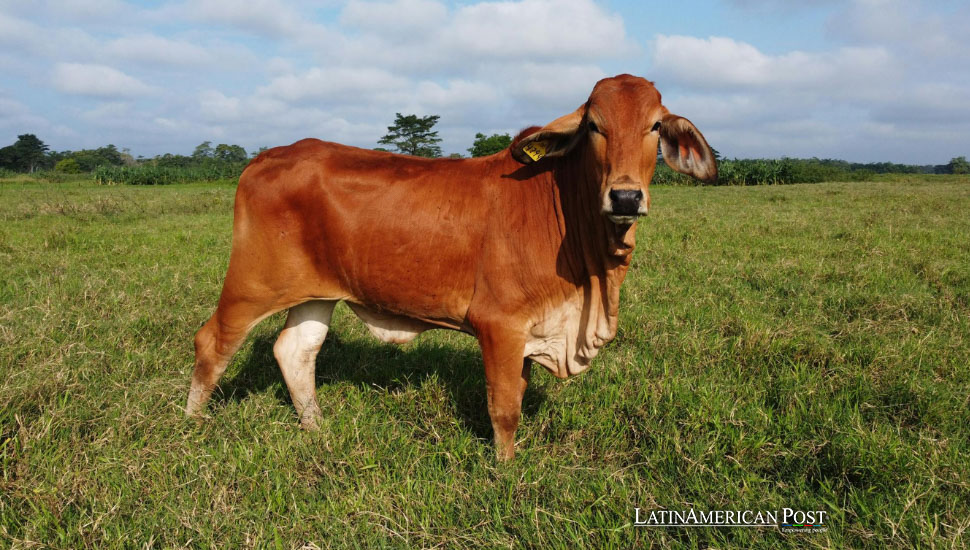China and Brazil Collaborate to Enhance Sustainable Beef Production

China and Brazil launch a pilot scheme to improve beef production sustainability, addressing emissions and deforestation concerns while setting a global standard for transparency in the beef supply chain.
China, the world’s largest beef importer, and Brazil, the biggest supplier, are embarking on a significant initiative to make beef production more sustainable. Their unique positions in the global beef industry give this collaborative effort a far-reaching impact, reflecting a growing global awareness of the environmental impact of beef production, particularly in regions like Brazil, which is associated with the clearance of carbon-trapping forests. On Wednesday, state media reported that the two countries will implement a pilot scheme to address these issues.
The Urgent Need for Sustainable Beef Production Beef is one of the most emissions-intensive forms of food production. In Brazil, this problem is exacerbated by the connection between food production and the deforestation of extensive carbon-absorbing forests. The environmental cost of beef production is significant, with cattle ranching in Brazil linked to nearly 24% of global annual tropical deforestation and approximately 10% of total global greenhouse gas emissions, according to environmental organization The Nature Conservancy.
China’s State Administration for Market Regulation has been in discussions with Brazilian institutions to develop methods that ensure the transparency of the beef supply chain. This initiative aims to establish a cross-border traceability platform, though it should have provided further information on the timing of this project, which has not been disclosed. The proposed system will be underpinned by a unified global standard, which will also help combat counterfeit beef.
Historically, Chinese companies have prioritized price over sustainability. However, there is a gradual shift towards greener supplies driven by policy signals and investor pressure rather than consumer demand, which is often the case in Western countries. This difference in motivation underscores the varying approaches to sustainability across the globe.
Despite the positive policy shift, traders and sustainability analysts highlight significant challenges. Higher costs and logistical hurdles will likely limit the demand for sustainable goods. Implementing a sustainable beef production system involves substantial investment in infrastructure and changes in operational practices, which can be expensive and complex.
Despite facing strict legal limits, Brazil’s cattle pasture is the most common initial use for deforested areas in the Amazon and neighboring Cerrado savanna. This practice continues illegally, posing a significant challenge to sustainability efforts. Ensuring compliance with environmental laws and promoting sustainable practices in such a large and diverse country is formidable.
Economic and Environmental Implications
According to Chinese customs, in 2023, China imported 2.74 million metric tons of beef, with more than 40% sourced from Brazil. This immense volume underscores the importance of addressing sustainability in the beef supply chain. A successful pilot scheme between China and Brazil could set a precedent for other countries and industries, showcasing how international collaboration can lead to meaningful environmental benefits, such as reduced emissions and deforestation.
The economic implications of this initiative are also significant. By adopting sustainable practices, Brazil could enhance its reputation as a responsible food producer, opening up new markets and attracting environmentally conscious consumers. For China, this move aligns with broader policy goals to reduce the country’s environmental footprint and improve food security through reliable and transparent supply chains.
Latin American Context
Latin America, particularly Brazil, plays a pivotal role in the global beef industry. The region’s vast natural resources and favorable climate conditions make it a leading beef producer. However, this comes at a significant environmental cost, particularly concerning deforestation and greenhouse gas emissions. The collaboration between China and Brazil represents a critical step towards balancing economic growth with environmental stewardship in Latin America.
In contrast to the consumer-driven sustainability efforts in the West, Latin American countries like Brazil often face different challenges and pressures. Economic development and poverty alleviation are paramount, and environmental considerations must be integrated into this broader context. International partnerships, such as the one with China, can provide the necessary support and incentives to adopt sustainable practices.
Moreover, the success of this pilot scheme could inspire similar initiatives across Latin America. Countries like Argentina and Uruguay, which are also major beef exporters, could adopt similar measures to enhance the sustainability of their beef production. This would benefit the environment and improve Latin American beef’s competitiveness in the global market.
Future Prospects and Global Impact
The Potential Benefits of the China-Brazil Pilot Scheme
The establishment of a unified global standard for beef traceability is particularly noteworthy. Such a standard could facilitate more transparent and reliable supply chains, benefiting producers, consumers, and the environment. It would also help combat counterfeit beef, which undermines market integrity and consumer trust.
For China, the shift towards sustainable beef is part of a broader strategy to address environmental concerns and enhance food security. By ensuring that its beef imports meet high sustainability standards, China can reduce its ecological footprint and promote more responsible consumption patterns.
Adopting sustainable practices in beef production is crucial for Brazil to maintain its position as a leading global exporter. By addressing deforestation and emissions, Brazil can improve its environmental credentials and appeal to environmentally conscious consumers worldwide, which could drive further economic growth and development in the country.
The collaboration between China and Brazil to enhance the sustainability of beef production marks a significant step forward in addressing the industry’s environmental impact. By setting up a pilot scheme and establishing a global standard for beef traceability, the two countries are taking meaningful action to reduce emissions and combat deforestation.
Also read: Brazil Suspends Meta’s AI Data Policy to Protect User Privacy
This initiative highlights the importance of international cooperation in tackling global challenges. As the world’s largest beef importer and the biggest supplier, China and Brazil have a unique opportunity to lead by example and inspire similar efforts worldwide. By balancing economic growth with environmental stewardship, they can contribute to a more sustainable and resilient food system for the future.




